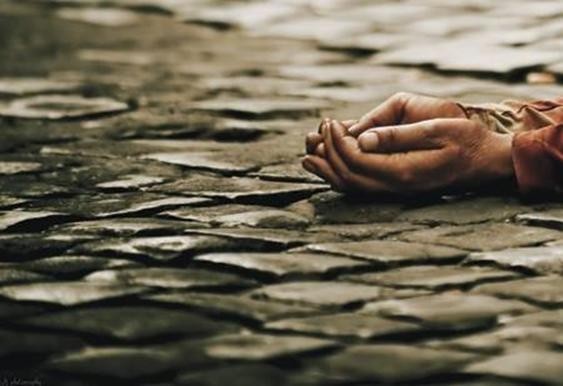If you happen to stop at the traffic lights near the University of Prishtina cafeteria, you can often see a young woman of 25, with her baby in her arms, steals up on the long waiting line of cars, and begs… In the name of God… She`s got four other children. The eldest has reached the school age, but together with his brother and two sisters, same as their mother, they go out on the streets of Pristina, begging for any cent in order to provide food for one day.
Valmira (the real name known to the author) cannot read or write, thus is not able to seek a stable paying job. For this reason, she spends the days begging in the streets with her baby in her arms.
Her children, as many other children of Roma, Ashkali and Egyptian (RAE) community, can probably expect a similar fate, given that they do not get an education. Those who manage to go to school, oftentimes drop out. Most often because of economic conditions, but sometimes also because of the discrimination by their school peers and their families forcing them to get married.
Valmira does not know if there is any institutional record of her existence. Moreover, she is not even aware that she herself should go and register. In such circumstances, it would be surprising if her children were registered.
At 16, Valmira`s family married her. Her mother got married at an early age too, same as her grandmother and all her other predecessors. Many other girls of the RAE community share the same fate. This community is thought to be living in worst conditions in Kosovo.
The percentage of the educated people amongst the RAE community, remains the lowest of all communities. Valmira is well aware that her children should receive education, but she says that she can`t afford the elementary living conditions, let alone their education.
Lacking the education, members of this community have problems of integrating into the society or find a steady job, thus live in poverty. Dire economic conditions become a reason that even the children who have started school, drop out.
“The Ideas Partnership” (TIP) organisation, founded by Elizabeth Gowing, has teaching reading and writing to members of this community as its main focus. TIP also teaches the pupils Albanian and English languages and Mathematics. They have one centre in Fushë Kosovë and one in Janjevë, which cooperate with the respective local schools so to encourage the children of RAE community. They have engaged approximately 120 volunteers who help with teaching in a program designed by the teachers, who are part of their staff.
One of the volunteers at TIP, Arta Tërstena, alongside other volunteers in this organization, helps with teaching. She says that in spite of the fact that she lives only 3 kilometres away from neighbourhoods 28 and 29 in Fushë Kosovë, she was not aware of the poor living conditions of the members of RAE community.
According to her, children of this community continuously complain of bullying by other children, and of teachers force them sit in the last rows in the classroom. She questions the educational system, considering that the school supresses pupils` creativity.
The principal of the school “Selman Riza” in Fushë Kosovë, Remzije Bogujevci rejects these remarks. She says that children have no problems in this school, and the teachers sit them jointly in groups, beginning from the low levels so they get used to one-another.
“Nevertheless, they are children and can quarrel, but they are not discriminated for ethnical reasons”, Bogujevci says.
Arben Sejdaj from TIP claims that the parents of RAE children have recently expressed in favour of the education of their children. He says that parents who take their children away from school are forced to do so because of dire economic conditions, but they do this also for they don`t see any perspective for their children after finishing school. TIP is making efforts to change their mindset.
As a consequence of not going to school, members of this community face the phenomenon of early marriages (at a minor age). TIP organization has founded a Girls Club where they talk to them about the importance of education, aiming at preventing these marriages.
“Girls at an early age are forced by their families to get married against their will”, says Arta Tërstena, pointing out that because of dire economic conditions, sometimes parents charge for the marriage of their daughters. “This fact makes girls think they`re being sold”, she adds.
There is no respective research statistics, so one can only assume the real reasons behind. According to Sejdaj, reasons may be cultural, as well.
He says that this phenomenon could be also explained with the lifespan in these communities, which is only 50-55, a lower average than in other communities. Consequently, they may start a family at an earlier age.
Bulza Çapriqi








